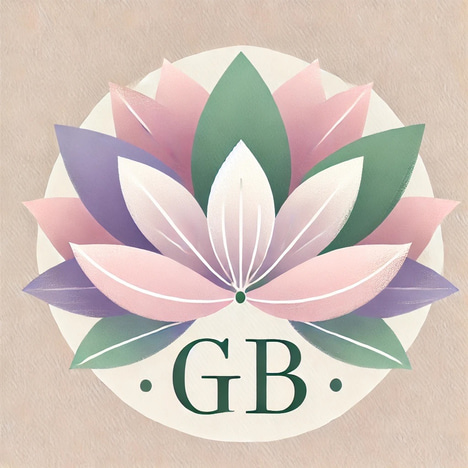gratitude in bloom
Kickstart Your New Year: The Ultimate Guide to Decluttering
Carla Piedrahita
1/17/20255 min read


Understanding the Importance of Decluttering
As the new year unfolds, many individuals are motivated to reevaluate their living and working spaces. Decluttering not only serves as a practical component of this process but also plays a significant role in fostering improved mental well-being. The act of organizing one’s environment encourages a clear, uncluttered mind, allowing for enhanced focus and creativity. When personal spaces are free of excess items, individuals often experience heightened productivity levels. This transformation can be particularly beneficial at the start of the year, as it sets a positive tone for the months ahead.
Moreover, clutter can have a profound impact on everyday life, contributing to feelings of anxiety and overwhelm. Environments filled with unnecessary possessions may lead to distractions, making it difficult to concentrate on tasks or enjoy moments of relaxation. As one begins to remove superfluous belongings, there is a tangible reduction in these stressors. The process of decluttering encourages mindfulness and intentionality, as individuals assess the importance of each item in their lives. By allowing oneself to let go of what no longer serves a purpose, it is possible to cultivate not only a physical space that is more appealing but also a mental space that is more serene.
Creating a peaceful home environment has been linked to improved mood and greater overall happiness. When clutter is minimized, individuals often report an increased sense of control and well-being, making it easier to invite harmony into their daily routines. Therefore, the importance of decluttering extends beyond a mere tidying of possessions; it acts as a crucial step toward nurturing a lifestyle infused with clarity, purpose, and tranquility. As we embark on this new chapter, the time to prioritize decluttering is now.
Best Practices for Effective Decluttering
Effective decluttering can significantly enhance your living space and mental well-being. One popular method to consider is the Marie Kondo method, which emphasizes keeping only those items that "spark joy." This approach encourages individuals to evaluate their possessions systematically, focusing on categories such as clothing, books, and kitchen items, rather than grouping by room. By handling each item, you become more conscious of what you own and can make informed decisions about what to retain.
Another engaging strategy is the 30-Day Minimalism Game, where participants eliminate a specific number of items each day for a month. This gradual approach makes the decluttering process manageable and can be particularly motivating as you track your progress. For instance, on day one, you may discard one item, on day two, two items, and so forth. This increase in quantity can quickly lead to a substantial reduction in clutter.
When starting the decluttering process, it is essential to tackle each room one step at a time. Begin with the area that feels the most overwhelming, often the kitchen or garage. Break the process into smaller, achievable goals, focusing on decluttering one drawer or shelf at a time. This makes the task less daunting and allows you to celebrate small victories.
Creating a checklist can also streamline your efforts. List items to keep, donate, or discard, which will help you stay organized. For donated items, consider local charities or shelters that can benefit from your decluttered possessions. Remember, keeping family heirlooms or items that carry sentimental value can add emotional balance during the decluttering process.
By integrating these effective strategies and techniques into your routine, you can create a more organized, clutter-free living environment and make decluttering feel satisfying rather than overwhelming.
Avoiding Future Clutter: Smart Consumption Habits
As we strive to maintain a clutter-free environment, it is crucial to cultivate mindful consumption habits that can help prevent future build-up of unnecessary items. The foundation of smart consumption lies in distinguishing between needs and wants. By assessing what items are truly necessary for daily life versus what is simply desirable, individuals can significantly reduce the tendency to overconsume. Implementing a needs-based approach allows for more intentional purchasing decisions that align with one's priorities and lifestyle.
Adopting a minimalist mindset plays a vital role in fostering such habits. Minimalism encourages individuals to embrace simplicity and prioritize quality over quantity. This approach not only applies to physical possessions but also extends to experiences and commitments. By focusing on what adds genuine value to life, individuals can resist the allure of excessive purchasing and clutter accumulation. Practicing minimalism can lead to increased happiness and reduced stress, as a simpler environment often promotes mental clarity.
In addition to reassessing physical consumption, digital decluttering is an essential component of maintaining an organized life in today's digital age. The proliferation of digital devices and online platforms can easily contribute to a different kind of clutter that weighs heavily on users. Therefore, regularly evaluating and organizing digital spaces, such as emails, documents, and social media, is just as important as physical decluttering. It is beneficial to develop a routine that includes purging outdated files and unsubscribing from unnecessary notifications, which can enhance overall productivity.
Finally, practical tips for making informed purchasing decisions include creating a shopping list before heading out, setting a budget, and implementing a waiting period for non-essential purchases. This period allows for reflection and can help determine whether the item is truly needed. By practicing these strategies, individuals can enjoy a balanced lifestyle free from the burdens of excessive clutter, thereby achieving a sustainable approach to consumption in a consumer-driven world.
Creating Sustainable Organizational Routines
To achieve a clutter-free environment, it is essential to establish sustainable organizational routines that cater to various aspects of daily living. By integrating these routines into your lifestyle, you can effectively reinforce your decluttering efforts and maintain an organized space over time. The key is to develop habits that are both consistent and manageable, allowing organization to become part of your daily routine.
Starting with daily practices, it is beneficial to dedicate a specific time each day to tackle small tasks. For instance, designating fifteen minutes in the morning or evening to clear surfaces can significantly decrease clutter buildup. Implementing a 'one in, one out' rule when acquiring new items helps to prevent accumulation; for each new purchase, consider donating or discarding an equivalent item. Additionally, fostering a habit of returning items to their designated places immediately after use can significantly contribute to maintaining order.
Moving on to weekly habits, set aside time each week to review the organization of key areas such as the kitchen, closets, and workspace. A thorough cleaning and reorganization session can reinforce previously established systems while allowing you to reassess items that may no longer be needed. This practice not only decreases clutter but also offers an opportunity to make adjustments to your organizational methods. Furthermore, employing checklists can help in staying focused during these sessions.
Monthly check-ins are also essential in sustaining a clutter-free environment. This can involve evaluating your storage solutions, assessing if they still fulfill your needs, and adjusting as necessary. The role of technology cannot be overlooked in these organizational processes. Various apps can assist with reminders for decluttering goals, as well as help in managing storage through inventory tracking. By integrating these routines along with digital assistance, you can create a holistic approach that promotes long-term organization and enhances your living space.
